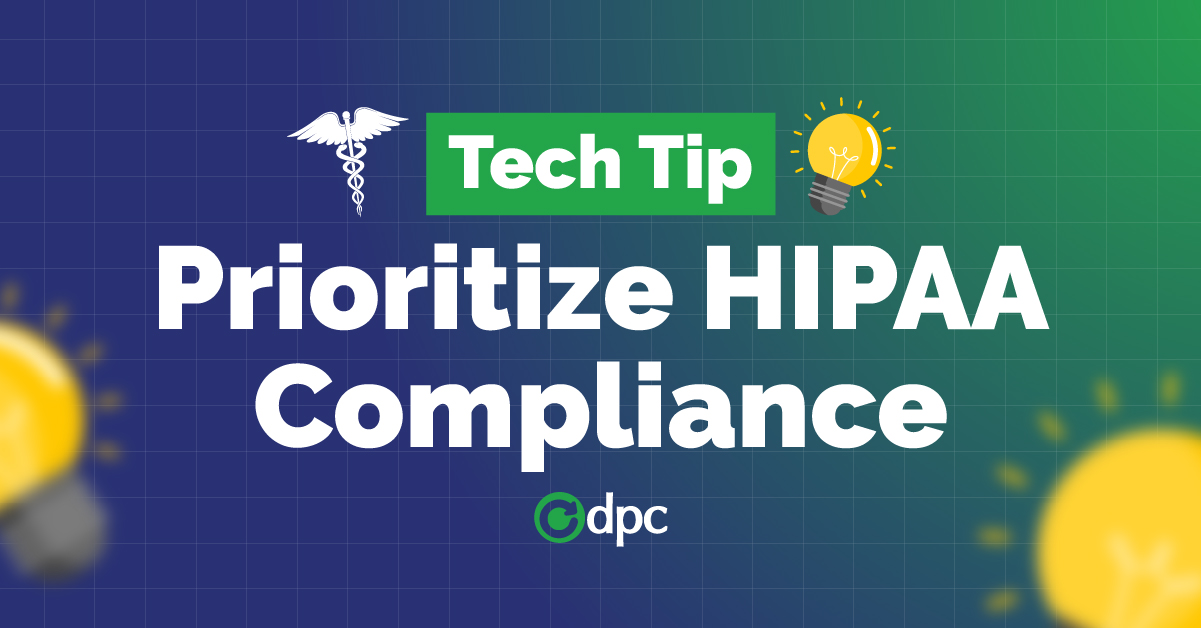Tech Tip: Prioritize HIPAA Compliance in Your IT Strategy
In today’s digital-first world, protecting sensitive health information isn’t just good practice—it’s the law. Whether you’re a healthcare provider, a business associate, or a technology vendor working in the healthcare space, HIPAA (the Health Insurance Portability and Accountability Act) compliance must be at the core of your IT operations. Here’s a tech-savvy tip to help you stay secure and compliant.
Tip of the Week: Encrypt Everything—At Rest and In Transit
Why it matters: Encryption is your first line of defense against unauthorized access to electronic protected health information (ePHI). HIPAA doesn’t mandate encryption in all cases, but it strongly recommends it—and failing to encrypt can be seen as negligent if a data breach occurs.
How to implement:
- Data at Rest
Store all ePHI using AES-256 encryption on hard drives, SSDs, and servers. Most modern operating systems and cloud providers offer built-in encryption tools (e.g., BitLocker, FileVault, AWS S3 encryption). - Data in Transit
Use secure communication protocols like HTTPS, SSL/TLS, or VPNs for all data transmitted across networks. If you're emailing ePHI, make sure your email service supports end-to-end encryption and complies with HIPAA standards. - Cloud Services
If you’re using cloud-based tools (like EHR systems, file sharing platforms, or communication apps), confirm that they’re HIPAA-compliant and offer Business Associate Agreements (BAAs). - Mobile Devices
Mobile phones and tablets should be encrypted, locked with strong authentication, and remotely wipeable in case of loss or theft.
Bonus: Conduct Regular Risk Assessments
Encryption is critical, but it’s only one piece of the puzzle. HIPAA requires you to conduct regular risk assessments to identify vulnerabilities in your security posture. This includes reviewing your policies, auditing user access, and testing disaster recovery plans.
Final Thoughts
HIPAA compliance isn’t just about avoiding fines—it’s about earning patient trust and safeguarding your reputation. By prioritizing encryption and secure data handling, you build a strong foundation for compliance and peace of mind.
Need help implementing secure, HIPAA-compliant systems? Talk to our IT experts today!
If you are interested in hiring us to manage your IT infrastructure, please reach out to us here.

